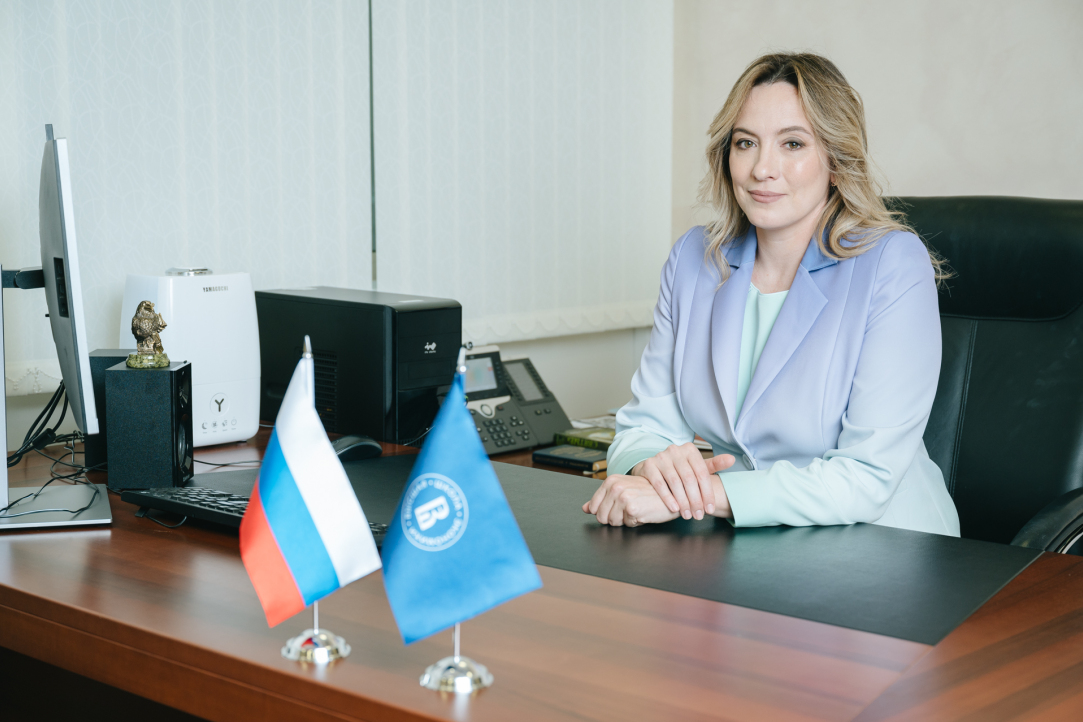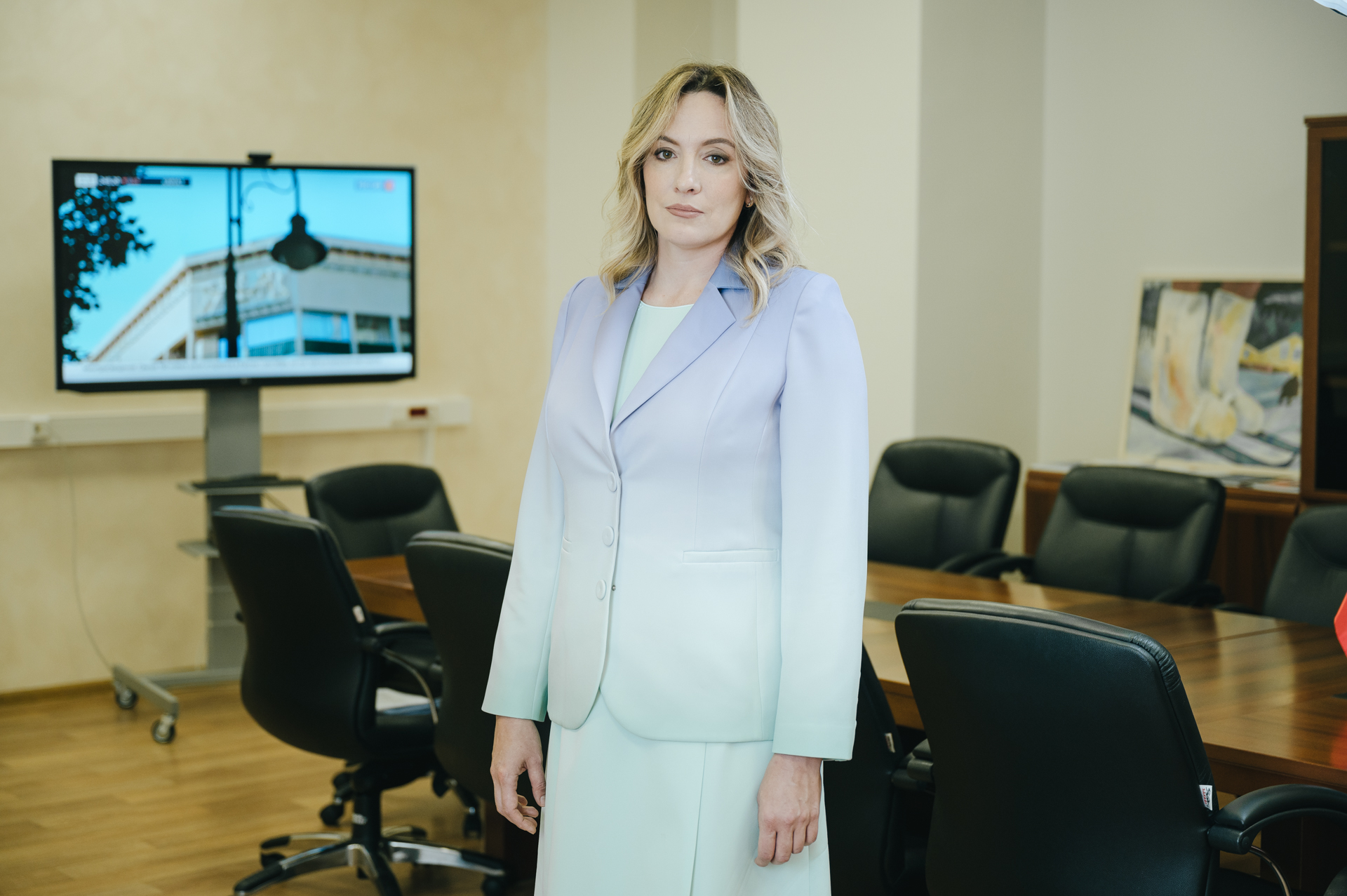Victoria Panova: 'To Achieve Genuine Success in Our Development, Coordinated Efforts of All Subdivisions of the University Are Essential'

International academic and educational cooperation is a vital aspect of activities for Russian universities. At the beginning of the new academic year, Vice Rector Victoria Panova addresses HSE's initiatives in this area.
— We are discussing international relations and HSE's international policy in a context marked by dramatic changes on a global scale across multiple levels, including interstate diplomacy, the business landscape, and the academic and educational domains. How have these changes affected HSE University, which is renowned for its relationships with American and Western European academic and educational institutions and centres?
— Historically, HSE has indeed been largely oriented towards the West. The university was founded 30 years ago, at a time when relations between Russia and Western countries were evolving dynamically and constructively. Not only HSE, but most other Russian universities sought to build relationships with their European and American counterparts. Our university, due to its strong managerial and project competencies, performed, let us say, somewhat better than others in this aspect, and by the time the context changed, we had amassed a substantial portfolio of collaborative projects in both research and higher education.
I would not say that our longstanding partners are in a hurry to cancel and forget us. Our cooperation with over 200 foreign institutions continues through more than 250 international agreements in the field of education. Collaborations with 40 institutions in European countries have temporarily been suspended at the partner's initiative, but many other colleagues, despite the institutional bans imposed by European governments, still cooperate with us. HSE has been and continues to be an international, multilingual university, open to dialogue and collaborative projects. However, due to objective reasons, we have been diversifying the geography of our international initiatives.
— What does this diversification look like?
— The focus of HSE's international activities today has been shifting towards the Asia-Pacific region, the Middle East, Africa, and Latin America. We have been actively negotiating with universities in countries such as India, China, Indonesia, the United Arab Emirates, Egypt, Ghana, and many others. During the first half of 2023, we signed 14 new cooperation agreements, with over 20 more agreements currently in preparation for signing, and over 60 other initiatives at various stages of negotiation.
— Who are the new partners joining HSE today, and what provisions are included in the agreements that have already been signed or are currently in preparation?
— We closely monitor potential partner universities to ensure they meet a set of criteria before entering into partnership with HSE. These criteria concern the reputation and standing of our potential partner in international and subject-specific rankings, the number of academic publications by the university's leading researchers in first-quartile journals, and other relevant indicators. Furthermore, we consider factors such as the level of international integration already achieved and the potential for incorporating the study of Russian language and culture.
Today, we sign framework agreements encompassing a wide array of scientific and educational collaboration tracks as well as agreements focused on specific areas of engagement.
For example, this May, we signed a framework cooperation agreement with UAE University, which ranks among the top three universities in its country and is a member of the Federation of Universities of the Islamic World. Our agreement with Mahidol University of Thailand specifically includes provisions for student exchange programmes. MU ranks among the world’s top 150 universities for medical education and is also renowned for the high-quality education it provides across various other fields, such as engineering, information and communication technologies, business, social sciences, and more. In total, academic mobility is a feature of more than 40 agreements with foreign universities that are currently under negotiation.
An important event for the advancement of inter-university relations will be the International Partner Week hosted by HSE at the end of September. Representatives from over 30 academic and educational institutions will convene in Moscow to discuss current developments in science and education, explore prospects for diverse engagement formats, and identify the advantages and opportunities for fostering cooperation within the framework of the Greater Eurasian Partnership.

— A notable change in HSE's international policy has been the transition to university-wide international agreements. What prompted this decision?
— The explanation is very simple. Today, to achieve genuine success in our development in the sphere of international scientific and educational cooperation, coordinated efforts of all subdivisions of the university—faculties, institutes, centres, and schools—are essential. We are establishing a clear and transparent system of international partnerships, one that eliminates duplication of functions and confusion regarding roles and responsibilities. A system in which all documents will be carefully crafted by lawyers, financial experts, and managers responsible for the relevant areas. University-wide international agreements will be concluded in the best interests of all university divisions, and all division heads and relevant personnel will be informed about the essence of these agreements. HSE today is a multidisciplinary university. The more coordinated and multifaceted our international presence, the more synchronised and harmonious the synergy of efforts across various departments will be. This, in turn, enhances our collective potential for forging new partnerships and facilitates the development and expansion of our existing projects.
— From your perspective, how successful has this year's admission campaign been in terms of international admissions?
— Despite the ever-changing situation, we received over 6,000 applications from nationals of 140 different countries. Kazakhstan, Uzbekistan, Belarus, China, Ghana, Nigeria, and India continue to top the list in terms of the number of applicants interested in pursuing education at HSE. We have seen a significant increase in the number of applicants from Algeria, Egypt, Syria, and Iran.
I must acknowledge that the majority of international students were admitted through the Russian government scholarship. A year ago, it became evident that the lack of effective mechanisms to override the anti-Russian financial restrictions would severely affect fee-based admissions. At the same time, the university is bound by specific targets for foreign admissions that must be achieved. Admissions through the Russian government scholarship this year have been exceptionally helpful and provided a unique opportunity for talented foreign students to enrol at HSE.
Various programmes offered by HSE University, including economics and management, natural sciences, applied and creative disciplines, are highly sought after by foreign applicants.

As a result, more than 1,800 foreign students have been admitted to full-time programmes alone, marking an approximate 20% increase from 2022. Today, the total number of international students at HSE exceeds 5,000. I am confident that the positive trend will continue in the future.
— Competition in the international education market is growing fiercer by the day. Applicants are becoming more discerning and demanding, and attitudes toward Russia are not always objective, often based only on biased Western media coverage. In your opinion, what measures can be taken to address these trends?
— Operating in any foreign market requires coordinated actions across a range of areas. This entails engaging in dialogue with both governmental and non-governmental organisations, establishing relationships with business entities, and implementing an effective international information policy. Even media outlets in countries with a neutral stance towards Russia, which are not state-controlled, may sometimes propagate Western narratives to align with prevailing trends. All these aspects must be considered when formulating decisions and developing projects.
On the other hand, believe me that there are plenty of media outlets worldwide genuinely interested in gaining a deeper understanding of Russia's realities and way of life. We receive a significant influx of requests for comments and interviews from Indian, Chinese, African, and Latin American media.
We also should not overlook the rapid expansion of Russia's economic and humanitarian collaboration with international associations such as the EAEU, BRICS, SCO, and ASEAN. As you are aware, Russia will take on the BRICS chairmanship next year, and HSE will remain actively involved with BRICS countries in pursuit of new opportunities and prospects—especially considering that, beginning in 2024, BRICS will encompass 11 states representing the majority of the world's economy.
One of the factors contributing to our optimism is the extensive array of highly relevant educational programmes offered at HSE. In all four macro-regions where we are fostering cooperation—Asia, Africa, the Middle East, and Latin America—the most sought-after programmes among applicants fall under the STEM category (Science, Technology, Engineering, Mathematics). In these regions, the proportion of students pursuing education in these disciplines stands at a quarter or more, with Malaysia exceeding 43%. HSE, for its part, goes beyond merely providing education in both English and Russian in STEM and other disciplines. As part of project-based learning, students engage in addressing real-world challenges at major Russian and international corporations. By the time they complete their degree, more than 90% of graduates are already employed.
Also important is HSE's individual engagement with every foreign applicant. Each year, HSE's International Admissions Office undertakes numerous projects that involve academic administrators, programme managers, and instructors.
A promising area of collaboration between HSE and foreign universities focuses on advancing research through grant-based support. As a reminder, HSE has established over 50 Centres of Excellence, and research collaborations with renowned foreign scientists are ongoing across various fields. We have valuable scientific expertise and state-of-the-art laboratory facilities to offer our colleagues, and we are open to this dialogue
We have also been in discussions with our foreign partners about collaborative dual-degree programmes, which would provide instruction in both the native language and English. HSE University was among the pioneers in introducing such programmes, so addressing this topic during negotiations is not an abstract exercise but an entirely practical matter.
These and other factors lead us to believe that our success primarily depends on our own efforts rather than external circumstances.
— You have mentioned the competition in the international education market. Today, the world's leading universities are making efforts to engage with applicants directly, bypassing intermediaries. What steps is HSE taking in this regard?
— During the previous academic year, HSE University participated in eight major international educational exhibitions, where numerous masterclasses, consultations, and meetings with prospective students and their parents took place. We host educational online events for an international audience nearly on a weekly basis. Both faculty members and HSE students participate in these events.
This autumn, HSE will take part in China's largest educational exhibition, the China Education Expo 2023, scheduled to take place in October in Beijing.
In addition to this, we have launched a programme to establish lyceum classes abroad, with Uzbekistan serving as the pilot country. Over several months, we conducted more than a dozen full-time intensive courses for students at two academic lyceums in Tashkent. These courses covered subjects such as international relations, information technology, and the global economy. I find this format highly effective, and we plan to further develop and extend it to more countries.
Everything I have discussed so far represents just a portion of the international efforts currently underway. We must work both hard and fast, and I have no doubt that a cumulative effect will be achieved.
— What would you like to wish those who have advanced to the next year of their studies and those who have just received their student IDs?
— I would like to wish all our students diligence and perseverance. HSE is rightfully regarded as the first-choice university for the most talented young minds; the best and the brightest aspire to pursue their studies with us. Learn to work hard. Do not waste your time; instead, build your skills, explore new realms of knowledge, make the choices you believe are right, and pursue your goals. I am confident that you will succeed and, before long, become esteemed members of the true intellectual elite—the HSE alumni community.

